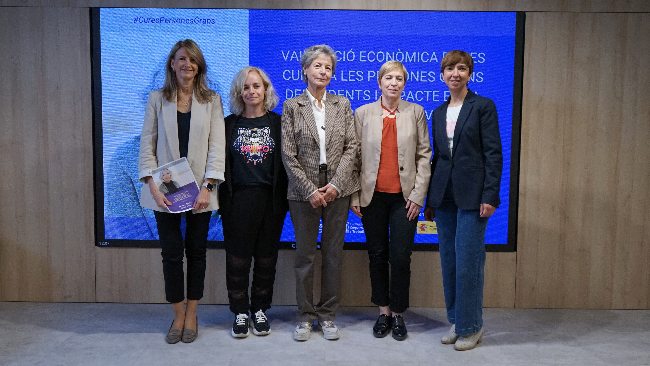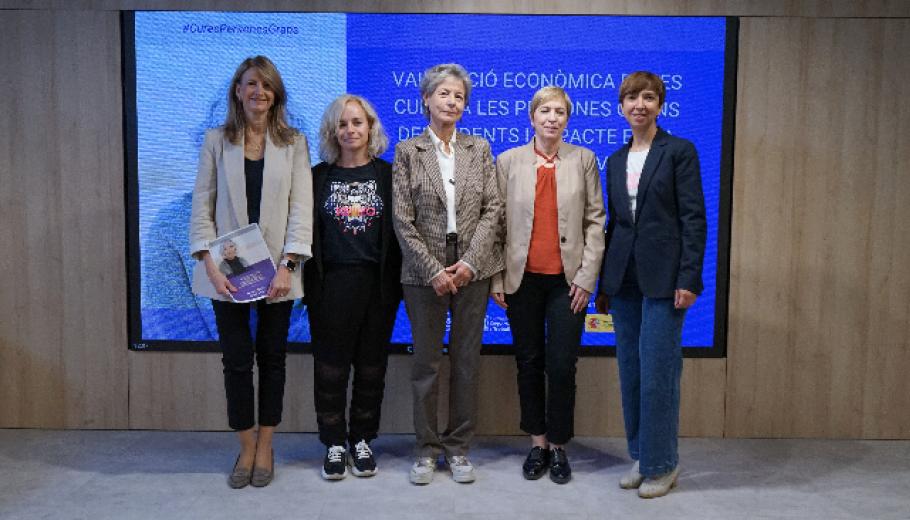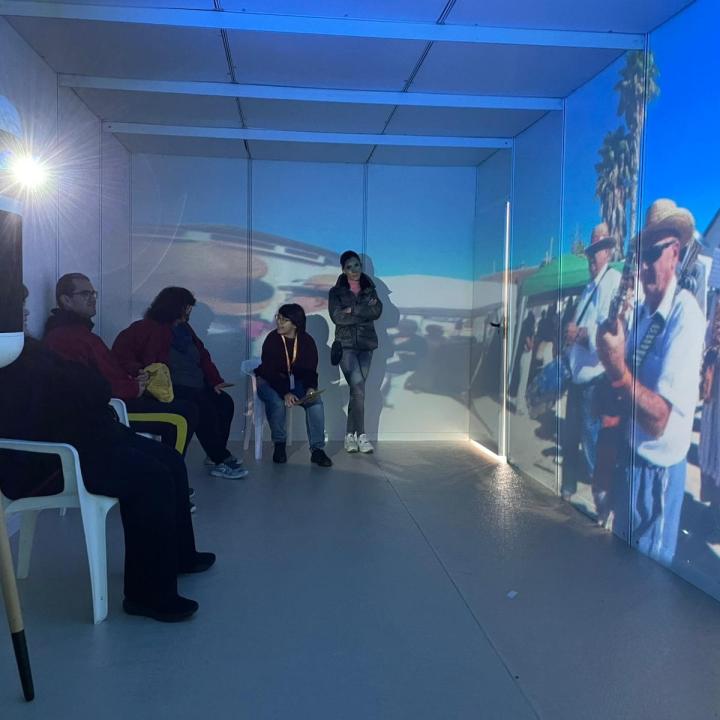Yesterday, the report Economic Valuation of Care for Dependent Elderly People and the Impact on the Sandwich Generation was presented at a press conference at the Barcelona Chamber of Commerce. The report was prepared by the Women, Business and Economy Observatory (ODEE) of the Chamber of Commerce and promoted by Aliura and Suara Cooperativa.
The study estimates that informal care for elderly people in Catalonia has an economic impact of 10.105 billion euros, representing 4.1% of the Catalan GDP. Of this figure, 2.7% comes from the work of women caregivers, who bear the majority of these responsibilities.
The presentation included contributions from the president of the Barcelona Chamber of Commerce, Josep Santandreu, who highlighted the value and quality of informal care, often unrecognized in official GDP. Carme Poveda, director of the ODEE and author of the study, presented the main results, while Àngels Cobo, director of the Digital Transformation Office of Suara Cooperativa, shared Suara's proposals to improve the quality of care and the well-being of caregivers. Anna Mercadé, honorary president of the ODEE, emphasized the importance of recognizing the essential role caregivers play in sustaining society. Laura Peracaula, co-general director of Suara, concluded the presentation by stating that "care is not an issue relegated to women; it is a social and public problem."

About the study
The aim of the study is to make this often invisible reality more visible and to give it economic value, particularly focusing on the role of women in the “sandwich” generation. These are women who, in addition to working, take care of their elderly parents and, in many cases, their children as well. These women dedicate an average of 6 more hours per week to care than men, which affects both their health and professional careers.
Future projections: urgent need to increase public spending
According to the report's projections, the current care system will be unsustainable by 2050 if public spending on dependency is not multiplied by at least 2.5. With the aging population, it is expected that the number of people over 64 in Catalonia will increase from the current 19% to 30%, significantly increasing care needs.
The study highlights the need for a paradigm shift in the care system, moving toward a more professional and shared responsibility model between men and women. Àngels Cobo emphasized the importance of increasing public investment, technology, and innovation to address future challenges.
The presentation gathered various media outlets, which covered the main conclusions. Detailed information from the presentation, the full report, and the press release can be found on the study’s webpage on the Aliura website.





